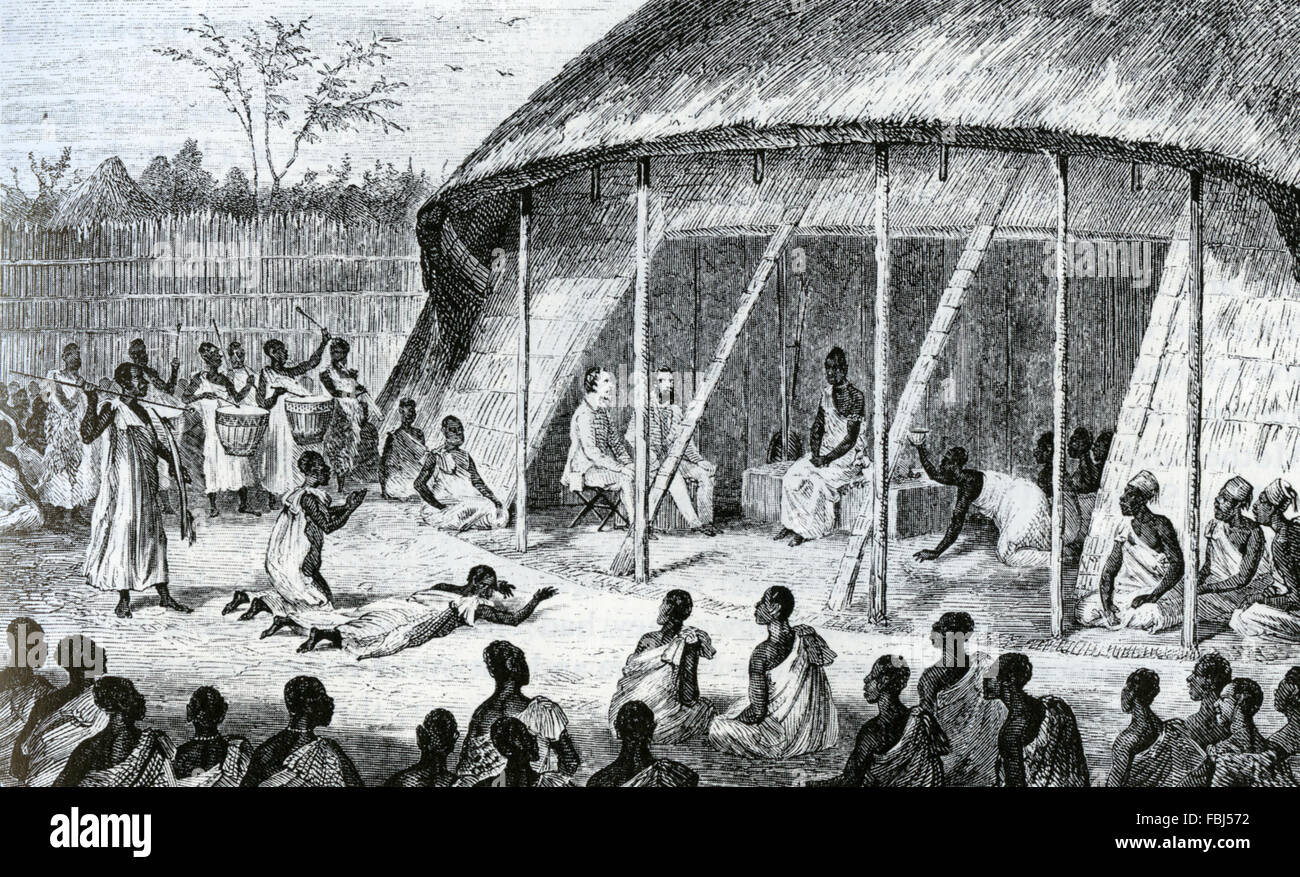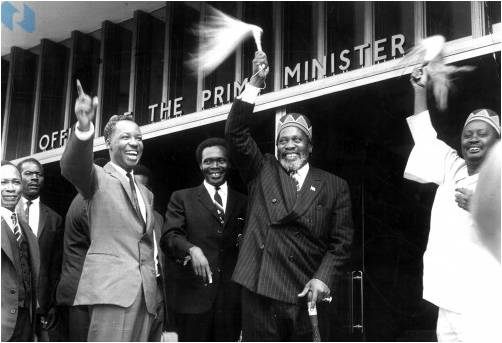Stages in the Growth of African Nationalism
Stage One: 1850-1900:
This stage of nationalism was characterised by signing of treaties between African Chiefs and trading companies from Europe.

Europeans Visiting the king of Buganda in 1856
Europeans such as Lugard, Karl Peters and Jackson among others concluded treaties on behalf of their respective metropolitan countries with African Chiefs or Kings such as Mwanga and Muteesa.
What is surprising to learn is that the treaties were phrased in English and the content was little known to the African Chiefs and Kings. Contrary to the expectations of the Africans, the Europeans became unfriendly, started monopolising trade, reduced the authority and powers of the chiefs and Kings and started subjugating the Africans. This resulted in the emergence of two major groups of African nationalists i.e. the collaborators and resisters.
The group of resistors was composed of Africans who chose to defend at any cost the independence of their areas. This group was composed of Kings, Chiefs and criminals who had escaped the long arm of the law. But because of the resilience and military superiority of the white man, many of the resistors were murdered, others fled to exile while the remaining gave in to colonialism. Good examples of resistors included Kabalega of Bunyoro and Jaja of Opobo.
There has always been a view propounded mostly by the so called "Eurocentric Scholars" that resistors were backward. This is untrue because they were only defending their independence which any other European would do if his country was attacked.
On the other hand the collaborators helped the white man in establishing colonial rule. Many of the Collaborators were corrupted and promised "heaven on earth" by the Colonialists. After the colonialists had firmly established their rule, many of the collaborators were sacked from positions they had been elevated to.
What is important to note is that both collaborators and resisters had one objective of maintaining and preserving independence.
Stage Two: 1900 -1920:
This stage and period was characterised by the integration of Africa into the colonial system. It witnessed the introduction of the growing of cash crops such as cotton, coffee, tea, cocoa, sisal and palm oil among others.
There was construction of communication network such as roads, rail lines and telegraph, hospital and many other infrastructures. In order to accomplish those projects, the colonialists resorted to land grabbing and forcing Africans to supply labour. At this stage Nationalism revealed itself in form of rebellions such as the famous Maji Maji rebellion of 1905-07 in Tanganyika,
Stage Three: 1920 - 1939.
This period is remembered as a period of inter war activities. The First World War had happened between 1914 and 1918 and the Second World War was in the making. In this period Africans expressed nationalism by increasingly demanding to participate in the administration of their countries and in the commercial sector.
The colonialists responded by granting many reforms, more Africans were elected to the Legislative councils. This was partly because the colonialists wanted to win African support in the Second World War.
Stage Four: 1939 to Independence:
This was at a time when the Second World War was beginning. During this period nationalism manifested itself in the formation of mass political nationalistic movements. This in turn led to the formation of modern political parties, which led African nations to independence.

Such parties included the Rassemblement Democratique Africaine (RDA) formed in 1946, Convention People's Party (CPP) formed in 1949 and led by Nkrumah, Kenya African National Union (KANU) formed in 1960 among others. The political parties began an inevitable campaign of mobilising the people and demanding self rule. It is noted that this period of time witnessed the emergence of three groups of nationalists:
The radicals:
This group was composed of nationalists who demanded independence there and then and at any cost.

Members of this group were educated but failed to find employment in the colonial establishment. So they had nothing to lose if the colonialists packed and went. Nkrumah of Ghana was one of the radicals.
Educated and learned nationalists:
Those had acquired western education and found employment in the colonial establishment for the reason that they were relatives of the traditional African chiefs. Though most of them wanted an end to colonialism, they wanted it in a less violent, slow and systematic way.
Traditional Chiefs:
This group of people served the colonial system. They wanted the colonial masters to remain because their going meant that they could lose their positions.
Post independent Era

National Movements and New States in Africa